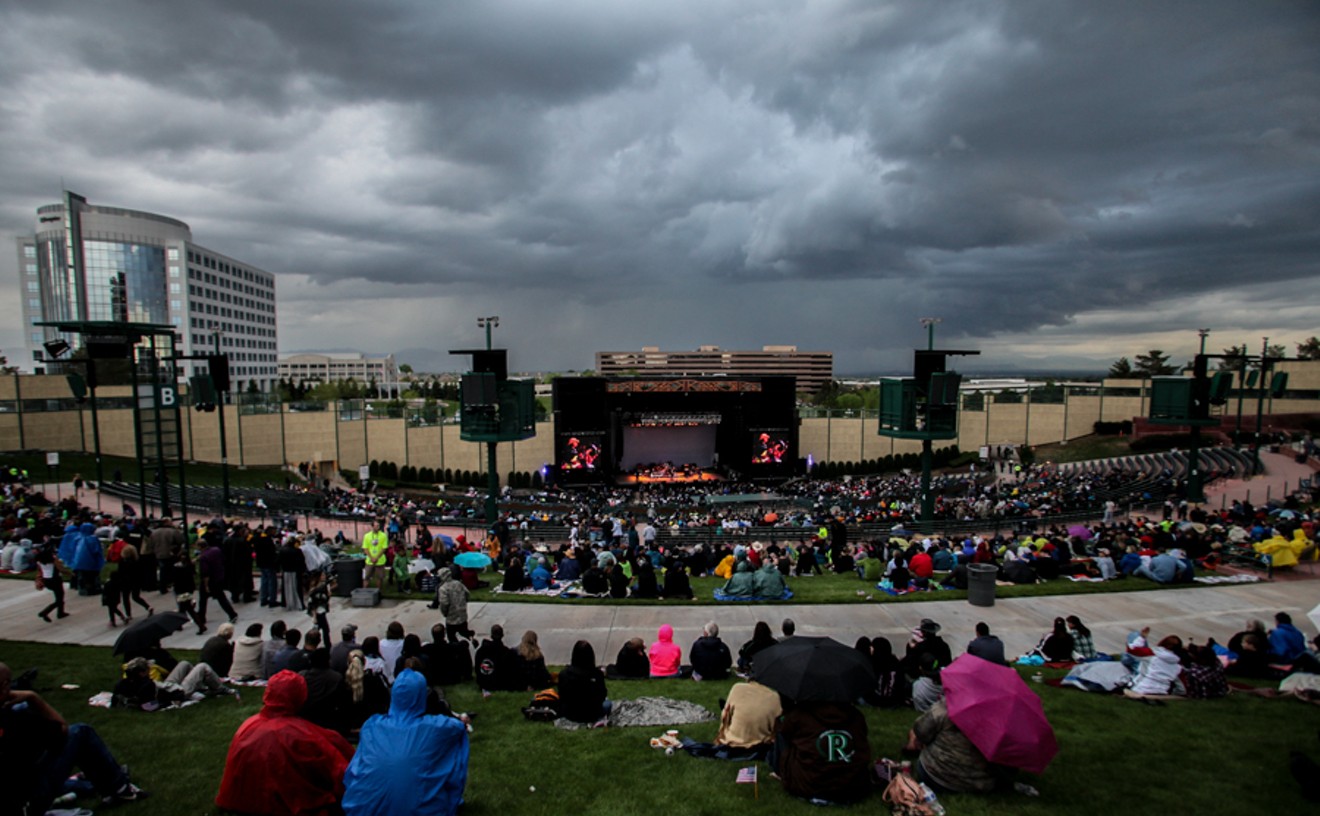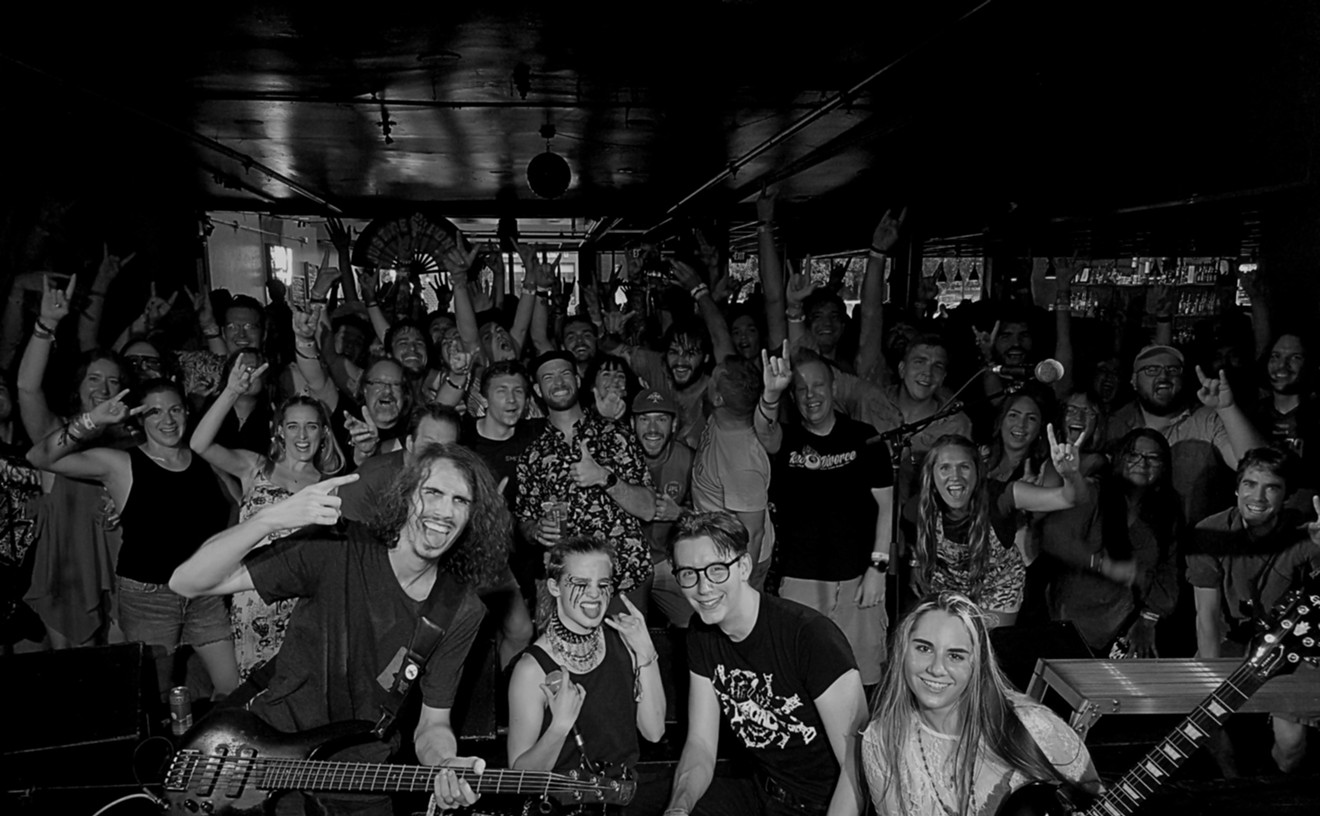Glancing at the dates of its first release, it might look like James Murphy gave us LCD Soundsystem a little late. The post-punk revival was already in the works with bands like the Rapture, Interpol and the Strokes finally giving bored, semi-educated white kids something to shake their tiny, jammed-into-skinny-jean booties to. But what you'll notice in interviews and retrospectives is that Murphy played a big role in formulating that sound in New York from the start.
Before there was LCD Soundsystem, there was Murphy the producer and with that, we got Les Savy Fav's excellent first album, 3/5, along with amazing records from The Rapture, Turing Machine and others. With Mo'Wax cofounder/UNKLE producer Tim Goldsworthy, Murphy started to DJ some of the above bands alongside the likes of CAN, ESG and the Talking Heads at a nightclub in New York, and eventually the two formed DFA Records.
Now think back to the early 2000s and try to remember what twenty-something suburban kids were dancing to. it was the same old shit we'd been hearing for the last twenty years, in some cases, literally. The most popular dance clubs were playing hits from the '80s and '90s. That was also the time when the first iPod appeared, and subsequently, a time period when anyone, anywhere could DJ a dance party with little effort or skill.
So when DFA released "Losing My Edge," in 2002, it kind of took everyone by surprise. It was new dance music, clearly founded on bands from the past, but forward thinking enough that it sounded new and original. It was also boiling over in hipness, namedropping bands, places, times. It was a track that foretold what would LCD Soundsystem would soon come to represent, whether it wanted to or not. Hip was a matter of where and when, of life and death, of name-dropping, of vinyl.
Of course, the majority of rock kids in 2002 were still scared of electronic music. For all its bells and whistles, the things it embodied, ecstasy, dancing, beats -- all of those things were dangerous. But that was what was so startling and ultimately rewarding about LCD Soundsystem. It wasn't dance music, not like Crystal Method or Moby or even Daft Punk was; it was electronic music made by a guy who liked '70s and '80s rock. It was also being made by a guy in his thirties, for kids in their twenties, and that meant the dream of never really growing up was truly a reality.
Now -- let's be clear here -- LCD Soundsystem did not single-handedly bring kids to the dance floor. There were plenty of other groups involved, not the least of which were on Murphy's label or from his town. What it did, however, was make it okay for bands to live inside their influences openly. LCD didn't release that big of a catalog; by the end it was something like 43 songs. But those songs were all different, and it was that eclectic sound that won the hearts of coke-addled brains and booze-binged hearts alike. This was dance music that was okay to like because it came packaged in with a rock-spectacle live show.
From 2002 onward, fans were rewarded with plenty of singles to keep their asses shaking, and three full-length records showed how diverse Murphy could be when he wanted. As its star rose, so did its scope and reach, as it became the soundtrack for a generation of under-achievers and late-bloomers. It survived the rest of the bands from the era by changing when they stayed stale, and now that its officially gone, the dance floors won't ever quite be the same.
By the end of it all, LCD Soundsystem was a number of things: It was a rallying cry for scenes, dance music with a little heart and soul, and, most importantly, it was a catalyst for the eclectic sound we take for granted today.










